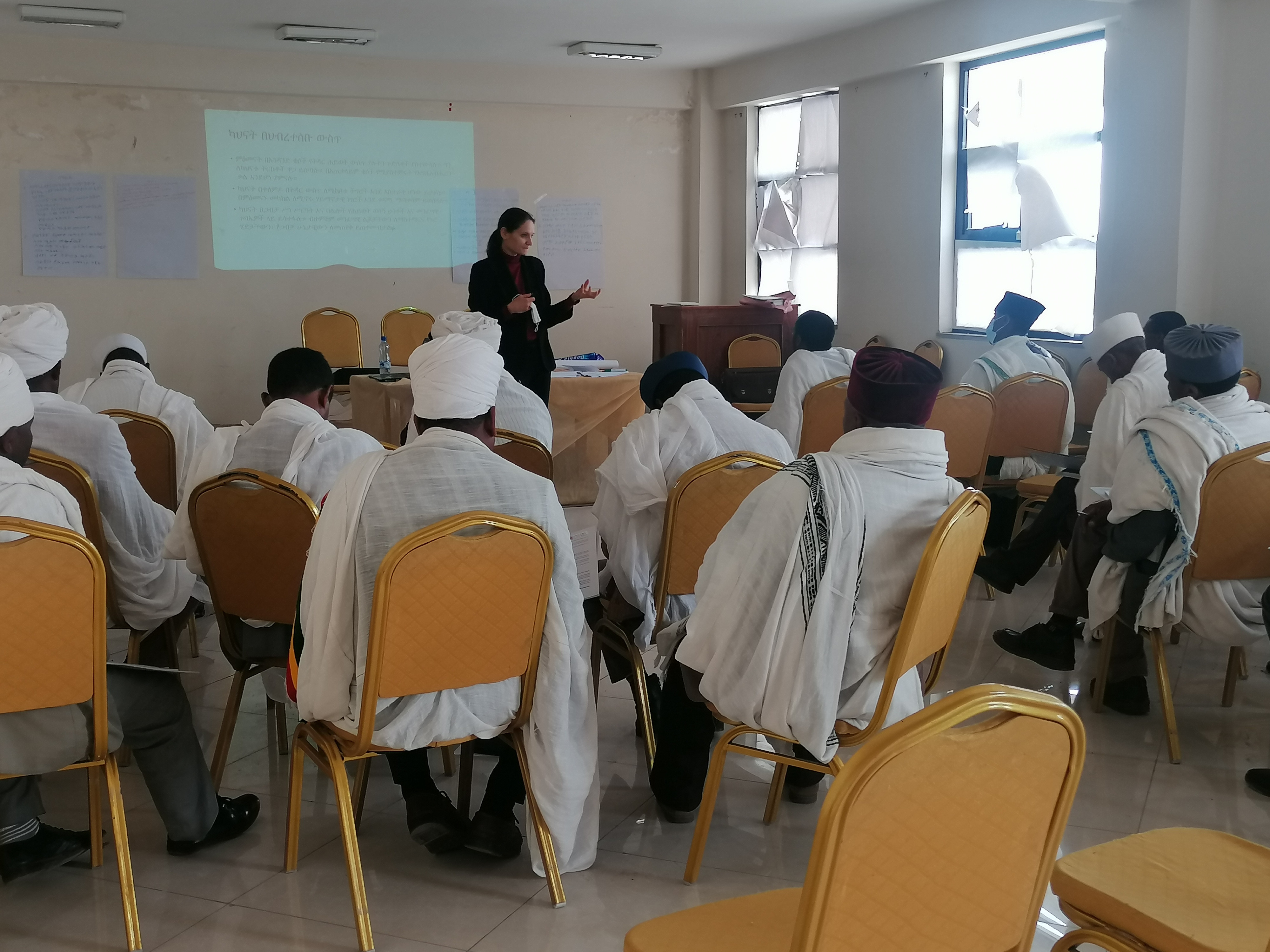I hope this helps.
Supporters (4 people)
Story
In November 2020, a terrible conflict erupted in Tigray, Ethiopia, that was characterised by the systematic use of sexual violence by Ethiopian and Eritrean Defence forces and other militant elements against women, girls and, even, men and boys. Documented actions included gang rape, sexual torture, reproductive violence and ethnic targeting—often described by survivors and observers as acts of genocidal intent or as ‘using rape as a weapon of war’ (EEPA, 2021; Project dldl, 2021). Survivors’ stories and accounts invariably suggest that sexual violence was used with the intent to destroy an ethnic group through biological warfare fought on the bodies of women and girls (Birhan Gebrekirstos and Mulu Mesfin, 2023; Rita Kahsay et al., 2024; World Peace Foundation, 2024).
The scope of the sexual violence has yet to be established for the entire region, but some sources estimate hundreds of thousands of victims and survivors based on medical, journalistic and investigative reports. The Commission of Inquiry on Tigray Genocide, which conducted house-to-house census with close to half a million women and girls across the region (excluding Western Tigray) found that rape was reported in 52.9% of all the accounts of violence collected. A randomized study that involved 52 districts out of 84 districts in the 6 zones of Tigray and a total of 5171 women of reproductive age (15–49 years), found that 9.7% had experienced sexual violence (Fisseha et al, 2023). This could suggest that about a similar percentage of the female population of Tigray was sexually violated during the war, bringing the total number in the hundreds of thousands.
The problem we are addressing
In the aftermath of the war, the scars of conflict are not only physical and psychological, but also deeply spiritual. Given the significance of the Orthodox tradition and faith for the Tigrayan community, most survivors of sexual violence grapple with profound spiritual anxieties and consequences that complicate their healing, exacerbated by their frequent exclusions from religious life and sacred spaces. Sadly, not all priests and religious teachers across Tigray have the theological acumen and pastoral training to respond to survivors’ concerns grounded in a solid knowledge of Orthodox theology, often making the situation worse, putting blame on survivors and pushing them away from religious life. Community bystanders also contribute to harmful attitudes towards survivors by engaging in derogatory name-calling and their further stigmatisation. Survivors of rape often end up seeing themselves as ‘sinners’ due to the violence committed against them, feeling helpless and unable to reintegrate in society. These realities increase the likelihood of suicide and mental health illnesses and have led many survivors to abandon their hometowns.
The Institute of Domestic Violence, Religion & Migration (IDVRM) in collaboration with the St Frumentius Theological College (SFTC) in Tigray have launched a project to produce a training manual for Orthodox clergy in Tigray that will build their preparedness to respond to survivors’ spiritual needs grounded in Orthodox theology, trauma-awareness and good safeguarding practices. As a first step, we have sought to collect survivor first-person accounts and testimonials to better understand the survivors’ concerns and anxieties, as well as barriers to coping and healing, where the latter is even possible. To avoid the need for conducting research with survivors and risking their re-traumatisation, we have consulted accounts collected by doctors, nurses, nuns and activists (represented in our team), which consistently point to the centrality of spiritual anxieties in survivors’ rationalisations of the violence and coping, and stress the urgency for a more systematic response by the Church and the clergy on the ground.
The testimonials we have collected already suggest that when clergy are informed, survivors are more likely to report abuse, seek medical care and feel sufficiently ‘empowered’ to begin their journey to healing. Where clergy lack training, however, spiritual and psychological re-traumatisation is often inevitable, and survivors’ holistic healing becomes unlikely.
How we will use the funds
We are now fundraising to fund the next phase of this project, which so far has been unfunded, relying on the goodwill of all parties. We estimate that with £5000 we will be able to:
- Support a team of seminarians, female theology, Church experts and GBV experts to develop the training materials
- Deliver a series of 3-5 workshops with 20-25 clergy and community stakeholders to pilot the training approach
- Produce the necessary evidence, including by collecting feedback from the participants, to improve and scale out the training to other seminaries and communities across Ethiopia
- Engage communities in awareness-raising to reduce survivor stigma and to promote survivors' re-integration in Church life and society
Help us make a substantive difference to real communities and survivors who suffer in silence, forgotten by the world.
Every donation received for this project will be transferred to the Ethiopian collaborators on the ground, with IDVRM retaining no fees for its labour and expertise, which it will continue to contribute freely.
First donation made!
Building a Spiritual Care Model to Respond to Sexual Violence Survivors in Tigray, Ethiopia has received a donation, donate to this cause to help reach the fundraising target!
Fundraising started!
Institute of Domestic Violence, Religion & Migration have launched a fundraising campaign, show your support with a donation!


